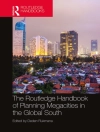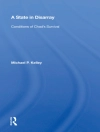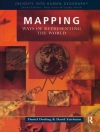This book explores how religious groups work to create sustainable relationships between people, places and environments. This interdisciplinary volume deepens our understanding of this relationship, revealing that the geographical imagination—our sense of place—is a key aspect of the sustainability ideas and practices of religious groups. The book begins with a broad examination of how place shapes faith-based ideas about sustainability, with examples drawn from indigenous Hawaiians and the sacred texts of Judaism and Islam. Empirical case studies from North America, Europe, Central Asia and Africa follow, illustrating how a local, bounded, and sacred sense of place informs religious-based efforts to protect people and natural resources from threatening economic and political forces. Other contributors demonstrate that a cosmopolitan geographical imagination, viewing place as extending from the local to the global, shapes the struggles of Christian, Jewish and interfaith groupsto promote just and sustainable food systems and battle the climate crisis.
Table des matières
1. Introduction: Religion, Sustainability and Place.- 2. By Their Fruits Ye Shall Know Them: Religion as Practice.- 3. Finding/Revealing/Creating Judaism’s Indigenous Core.- 4. Water Law in Muslim Countries Revisited: A Study of the Qur’anic Sources.- 5. Emerging Places of Repair: A Sustainable Urbanism Approach to Living in and with Cities, Inspired by Vine Deloria, Jr.’s Agent Ontology of Place.- 6. Saving Mount Shasta’s Sacred Water: The Spiritual Campaign against Crystal Geyser.- 7. Land Cover Change in a Ghanaian Sacred Forest.- 8. Role of Faith-based Social Groups in Promoting Sustainable Food Security in Nigeria.- 9. Protecting Ethiopia’s Church Forests: The Disconnect between Western Science and Local Knowledge.- 10. Religion and Spirituality in Hungarian Eco-villages.- 11. Resource Nationalism and Spiritual Pathways to Sustainability in Kyrgyzstan.- 12. Grounded in Community: Christianity and Environmental Engagement in Scotland.- 13. Christian Ideas Influencing U.S. Food Movements.- 14. The Jewish Food Movement: A Sustainable and Just Vision for Place, Identity and Environment.- 15. A Womanist and Interfaith Response to Climate Change.
A propos de l’auteur
Steven E. Silvern is Professor of Geography and Sustainability at Salem State University. His research has appeared in journals such as
Political Geography,
Cultural Geographies,
Historical Geography, and
American Indian Culture and Research Journal. He is also editor of
The Northeastern Geographer.
Edward H. Davis is Professor and Chair in the Department of Geography and Environmental Studies at Emory & Henry College in Virginia, USA. He has published extensively on rural and agricultural change in the US and Central America. Funded by the USDA, his explorations for seed savers in the Southern US led to the collection of dozens of rare heirloom Brassica varieties for the national seed bank. He serves on the board of the Geography of Religions and Belief Systems Specialty Group of the American Association of Geographers.












